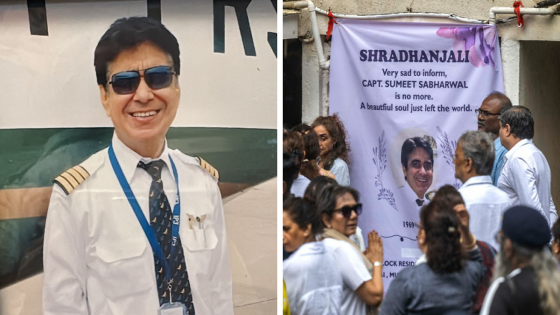The investigation into the tragic crash of Air India Flight 171 continues to focus on Captain Sumeet Sabharwal, who was at the helm when the aircraft went down shortly after takeoff on June 12. Speculation has arisen regarding his potential role in the incident, particularly after a civil aviation report suggested he may have intentionally cut off the fuel supply. As of 2025-07-20 03:15:00, the discourse surrounding Sabharwal has intensified, with colleagues defending his character while investigators probe deeper into his personal struggles.
- Captain Sumeet Sabharwal under investigation post-crash.
- Colleagues describe him as gentle and humble.
- Personal struggles impacted Sabharwal's mental health.
- Speculation about intentional fuel cutoff persists.
- Supporters argue against pilot's blame narrative.
- Final words to guard show concern for father.
Colleagues describe Sabharwal as gentle and respectful, raising questions about the narrative that paints him as responsible for the crash. With insights from friends and former colleagues, a more nuanced picture of the late captain is emerging, one that challenges the prevailing assumptions about his actions on that fateful day.
This situation begs the question: can we truly understand a pilot’s actions without considering their personal history? The narrative surrounding Sabharwal highlights the importance of context in aviation incidents. Key points include:
- Sabharwal faced significant personal challenges, including the death of his mother.
- Colleagues describe him as humble and dedicated, contradicting the “pilot error” theory.
- Investigators are examining whether external factors contributed to the crash.
As the investigation unfolds, it is crucial for the aviation industry to prioritize mental health support for pilots. Understanding their challenges can lead to safer skies for all.
































